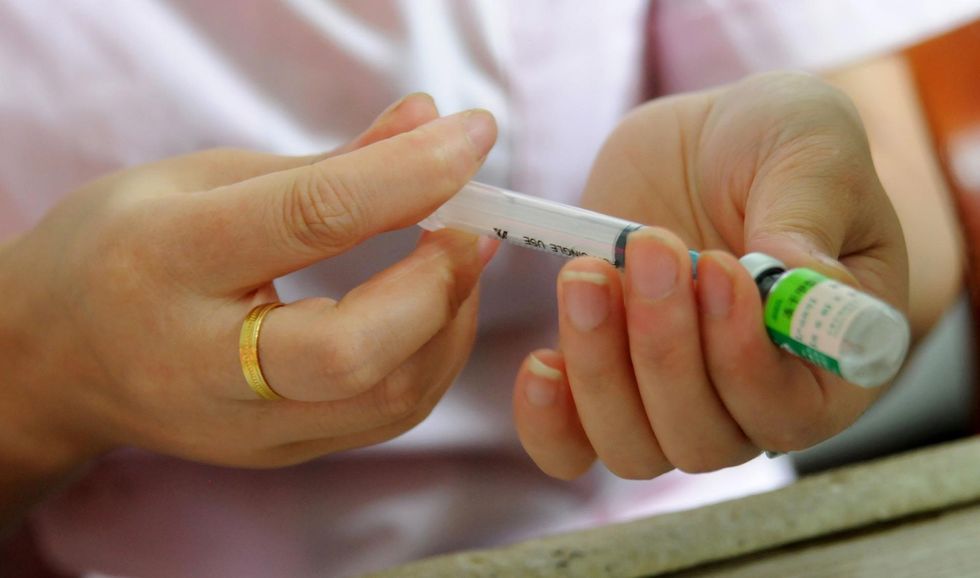
Russian trolls and bots reportedly intended to spread discord on Twitter about vaccines, according to a new study. (AFP/Getty Images)

Russian trolls and bots reportedly spread disinformation about vaccines with the intent to cause discord on Twitter, according to a new study by researchers at George Washington University.
The trolls and bots also reportedly had intents to distribute malware to social media users with the tweets.
According to the study, these same accounts were reportedly accounts that had also attempted to influence the 2016 presidential election.
Many of the trolls and bots shared messages that were pro- and anti-vaccinations with intents to cause a "false equivalency," according to the study.
The study, which analyzed thousands of tweets that were sent on Twitter between 2014 and 2017, did not intend to discover the malicious bots' intent. The study was intended to research ways to improve social media interactions for public health workers.
They apparently discovered something nefarious instead.
According to The Guardian, Mark Dredze of Johns Hopkins University said that the trolls and bots were using the vaccine debate as a "wedge issue" in order to divide social media users over the issue further.
"By playing both sides, they erode public trust in vaccination, exposing us all to the risk of infectious diseases," Dredze said. "Viruses don’t respect national boundaries."
The study, which was published in the American Journal of Public Health, said that there was a disparity between Americans' purported confidence in vaccines as opposed to what was being gleaned from Twitter.
"A significant portion of the online discourse about vaccines may be generated by malicious actors with a range of hidden agendas," said David Broniatowski, an assistant professor at George Washington University.
“It turns out that many anti-vaccine tweets come from accounts whose provenance is unclear. These might be bots, human users or ‘cyborgs’ — hacked accounts that are sometimes taken over by bots," Broniatowski said. "Although it’s impossible to know exactly how many tweets were generated by bots and trolls, our findings suggest that a significant portion of the online discourse about vaccines may be generated by malicious actors with a range of hidden agendas.”
One such tweet read, "Did you know there was secret government database of #Vaccine-damaged child? #VaccinateUS."
Another said, "#VaccinateUS You can't fix stupidity. Let them die from measles, and I'm for #vaccination!"
The trolls and bots reportedly appeared to link vaccination to other controversial U.S. issues such as religion, race, class, and government.
“Whereas bots that spread malware and unsolicited content disseminated anti-vaccine messages, Russian trolls promoted discord,” researchers concluded of their findings. “Accounts masquerading as legitimate users create false equivalency, eroding public consensus on vaccination.”
About 1.7 million tweets from 2014-17 were collected.
According to Johns Hopkins University, researchers also discovered more than 250 tweets regarding vaccination and which were reportedly directly linked to St. Petersburg, Russia's Internet Research Agency.
Broniatowski said that the #VaccinateUS hashtag was positively identified as being controlled by the Internet Research Agency on a near-exclusive basis.
In February, the U.S. named that very agency in an indictment over purported election meddling during the 2016 presidential election cycle.